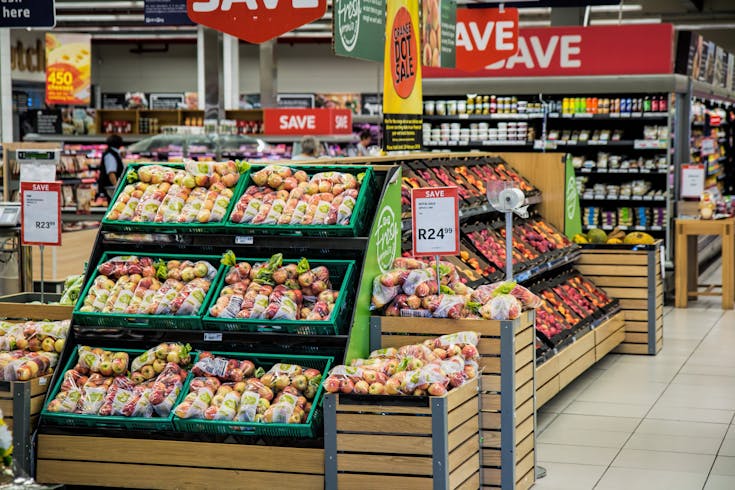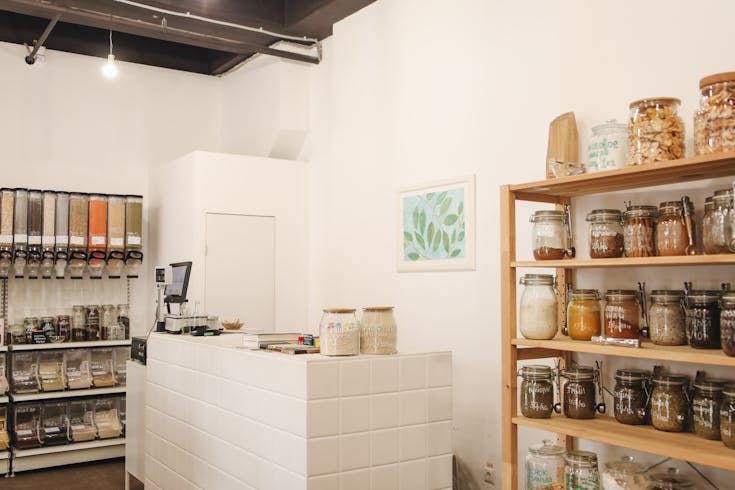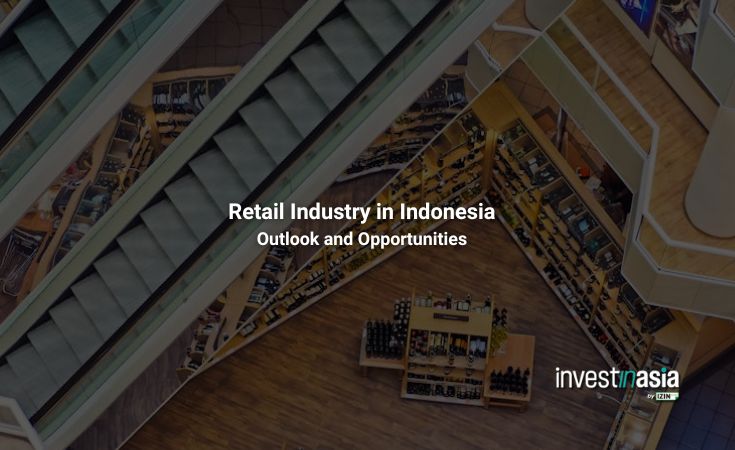The retail industry in Indonesia is one of the country’s most dynamic and promising sectors. Boasting a large and growing population, increasing urbanization, and a rapidly expanding middle class, Indonesia presents unparalleled opportunities for foreign investors.
This article explores the prospects, opportunities, key regulations, top players, and essential steps for starting a retail business in Indonesia.
Also read: Major Industries in Indonesia (Based on Contribution to GDP)
Indonesia Retail Industry Outlook


Indonesia’s retail market is projected to reach approximately USD 243 billion by 2026, growing steadily as urbanization and middle-class spending continue to drive growth. The rise of e-commerce and technological adoption are reshaping the retail landscape, creating a balanced synergy between traditional retail and online platforms.
Economic Growth and Retail Sector Performance
Indonesia’s economic resilience amidst global challenges is noteworthy. According to the Directorate General for National Export Development (2023), the nation’s economy grew by 5.03% (Y-o-Y) in the first quarter of 2023, slightly outpacing the previous quarter’s growth of 5.01%. The overall growth outlook remains robust, estimated at 4.5% to 5.3%, supported by strong domestic demand and positive export performance.
The retail sector plays a pivotal role in this economic success, contributing over 10% to Indonesia’s GDP. With a growing middle class and millennials’ increasing purchasing power, the sector shows immense potential for sustained growth. Notably, retail exports have also shown recovery, growing from USD 5.35 million in 2021 to USD 5.93 million in 2022.
Also read: Indonesia’s Biggest Export: Top Products and Commodities
Indonesia Retail Market Highlights
Indonesia’s retail sector stands out for its dynamic growth and wide-ranging diversity.
- Fragmented Market: Local players dominate the retail landscape, with major brands like PT Matahari Putra Prima Tbk, Alfamart, and Indomaret leading the mass market through physical retail channels.
- E-Commerce Expansion: Online marketplaces such as Tokopedia, Bukalapak, and Blibli have reshaped consumer habits. E-commerce revenue is forecasted to exceed USD 100 billion by 2027, driven by increasing digital adoption.
- Consumer Confidence and Behavior: Despite inflation concerns, Indonesia’s Consumer Confidence Index (CCI) has returned to pre-pandemic levels. Consumers are, however, adopting cost-saving measures such as reducing leisure spending and choosing affordable grocery options.
- Grocery Retail Dominance: Grocery retail remains the largest retail segment, contributing approximately USD 78.9 billion to total sales in recent years. Traditional grocery stores are complemented by the growing presence of modern supermarkets and online grocery platforms.
Also read: Where to Invest in Indonesia: 7 Best Cities and Locations
Key Trends in the Retail Industry
Here are some trends in the Indonesian retail industry:
- Shift Toward E-Commerce: With e-commerce users projected to reach 134 million by 2029, digital platforms are becoming integral to retail strategies.
- Sustainability Practices: A growing number of Indonesian consumers (estimated at 68%) are adopting sustainable shopping habits, particularly in categories like organic foods.
- Rise of Plant-Based Foods: Increasing demand for plant-based options, such as plant-based milk, reflects evolving consumer preferences.
- Personalization and Digitalization: Data analytics and AI are revolutionizing retail in Indonesia, enabling businesses to deliver tailored and digital-first shopping experiences.
Opportunities for Growth
Indonesia’s retail sector spans diverse categories, from F&B, fashion, and electronics to health, pharmacy, and entertainment. Local brands have immense potential to expand internationally, leveraging Indonesia’s position as a member of ASEAN and an epicenter of global growth.
Moreover, the presence of a large and tech-savvy millennial population provides a solid foundation for both traditional and digital retail models. The rise of sustainable and health-conscious consumer trends also offers new avenues for innovation in product offerings.
Indonesia Retail Business Regulation
The Indonesian government actively supports the retail sector through favorable policies, including:
- Foreign Ownership Adjustments: Regulations allow greater foreign participation in specific retail categories.
- Promotion of Local Products: Initiatives to boost domestic goods, particularly in traditional markets, reflect the government’s commitment to preserving local heritage.
- E-Commerce Compliance: Digital platforms are subject to specific regulations to ensure fair competition and consumer protection.
Foreign investors are advised to consult local experts or legal advisors to navigate these regulations effectively.
Also read: Indonesia Investment Incentives: Government Support for Foreign Businesses
Retail Business Opportunities in Indonesia


Indonesia’s diverse retail market offers lucrative opportunities across various segments, including:
- Food and Grocery: Traditional markets coexist with modern supermarkets, catering to different demographics.
- Fashion and Apparel: Rising fashion consciousness and global brand penetration boost demand in this segment.
- Electronics and Appliances: A growing tech-savvy population drives the need for gadgets and home appliances.
- Health and Beauty: Increasing awareness of wellness and self-care has resulted in the rapid growth of beauty retailers.
The rise of sustainable retail practices and the demand for personalized shopping experiences further add to the opportunities. Retailers leveraging data analytics and digital platforms can tap into these trends effectively.
Also read: What Products Are Most in Demand in Indonesia?
Leading Retail Companies in Indonesia
Indonesia’s retail landscape features a mix of local and international players. Notable companies include:
- PT Sarinah: Indonesia’s first department store, focusing on local products and heritage.
- Indomaret and Alfamart: Leading convenience store chains serving daily consumer needs.
- IKEA and Uniqlo: International brands with strong market presence.
- Tokopedia, Bukalapak, and Shopee: E-commerce giants transforming the digital retail ecosystem.
How to Start a Retail Company in Indonesia
Starting a retail business in Indonesia involves several key steps:
- Market Research: Identify your target audience, competitors, and product-market fit.
- Business Entity Registration: Foreign investors typically establish a PT PMA (Foreign-Owned Company) for operating in the retail sector.
- Compliance with Local Laws: Adhere to regulations regarding foreign ownership, e-commerce operations, and taxation.
- Location Selection: Choose urban areas with high foot traffic or online platforms for e-commerce ventures.
- Engage Local Experts: Collaborate with consultants to streamline legal and operational processes.
Also read: Can a Foreigner Own 100% of a Business in Indonesia?
Indonesia’s retail market offers abundant opportunities, making it a prime destination for foreign investors. With a robust economy, favorable demographics, and a government committed to economic growth, Indonesia is poised to remain a key destination for retail investment. By understanding the market, navigating regulations, and embracing innovation, businesses can thrive in this dynamic landscape.
If you are considering starting a retail business in Indonesia, there are a number of resources and support services available to help you get started.
InvestinAsia is among the companies that specialize in aiding you with Indonesia company registration. We boast a team of seasoned experts who can guide you throughout the process of:
- Foreign company / PMA registration in Indonesia
- Indonesia representative office registration
- PT PMDN Set Up
- Virtual office setup in Indonesia
- Business registration number in Indonesia
- Indonesian Business Licenses
- Indonesia Trademark Registration
If you are interested in starting a business in Indonesia, you can start by contacting us for FREE consultation.
Source:




